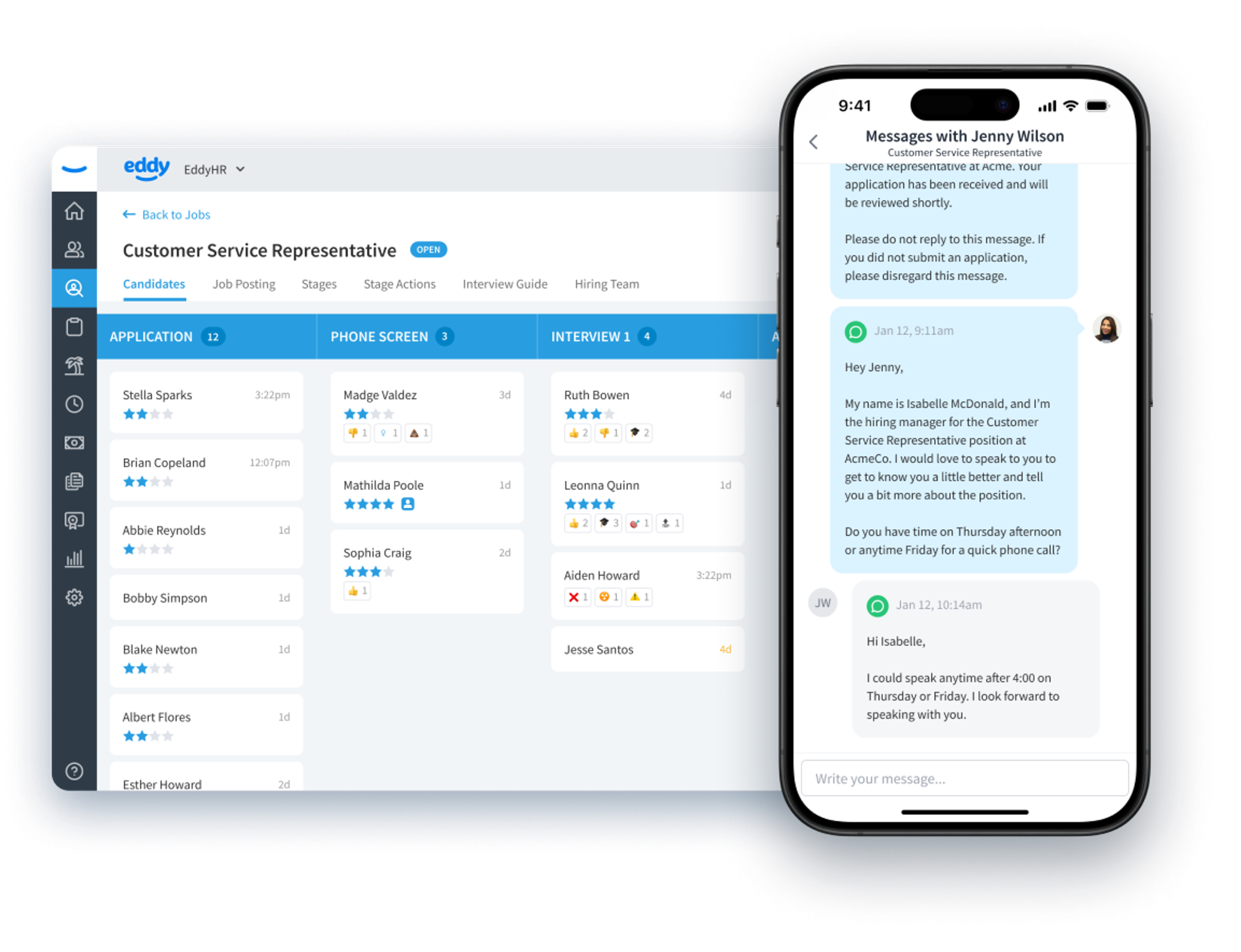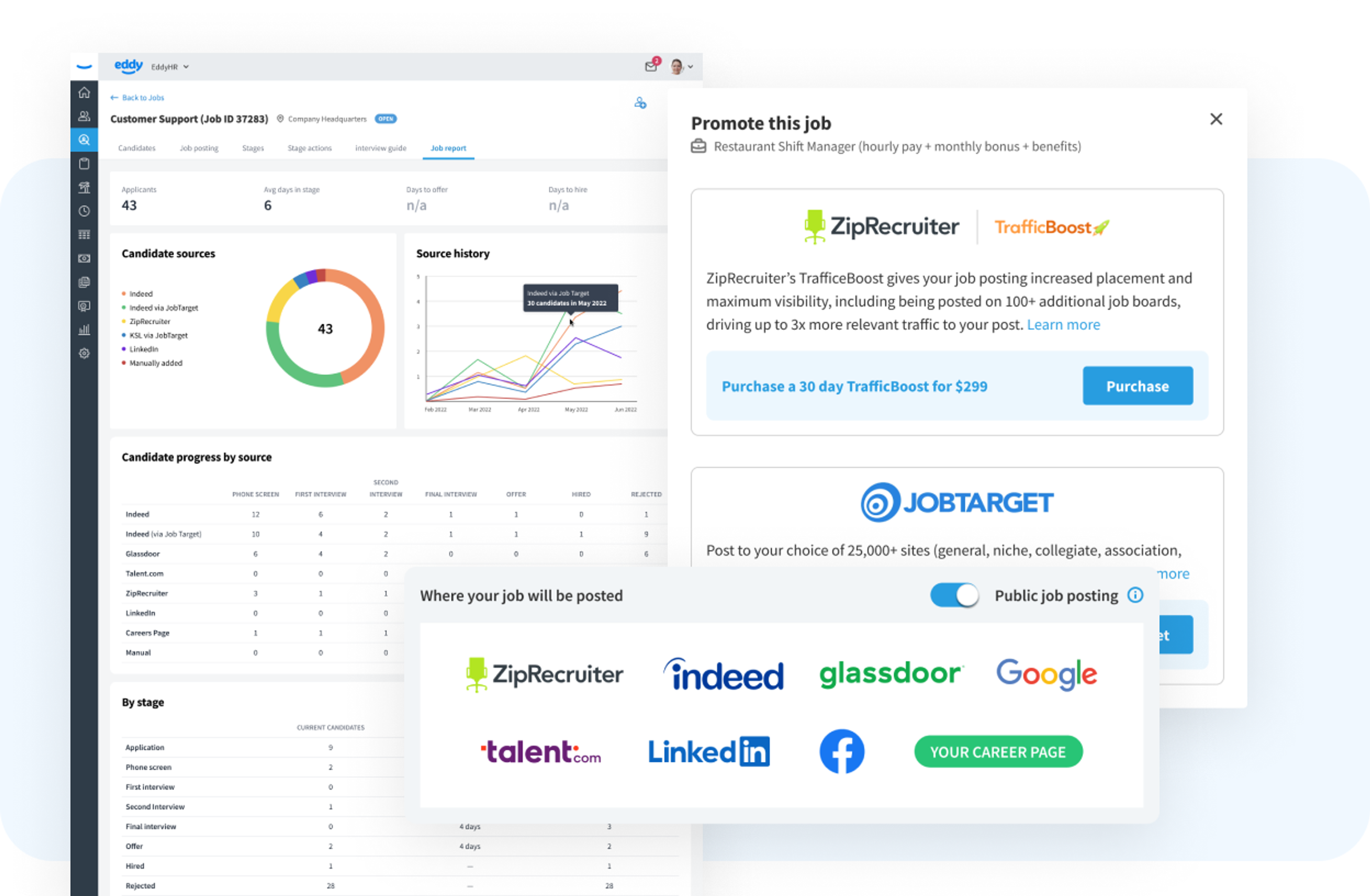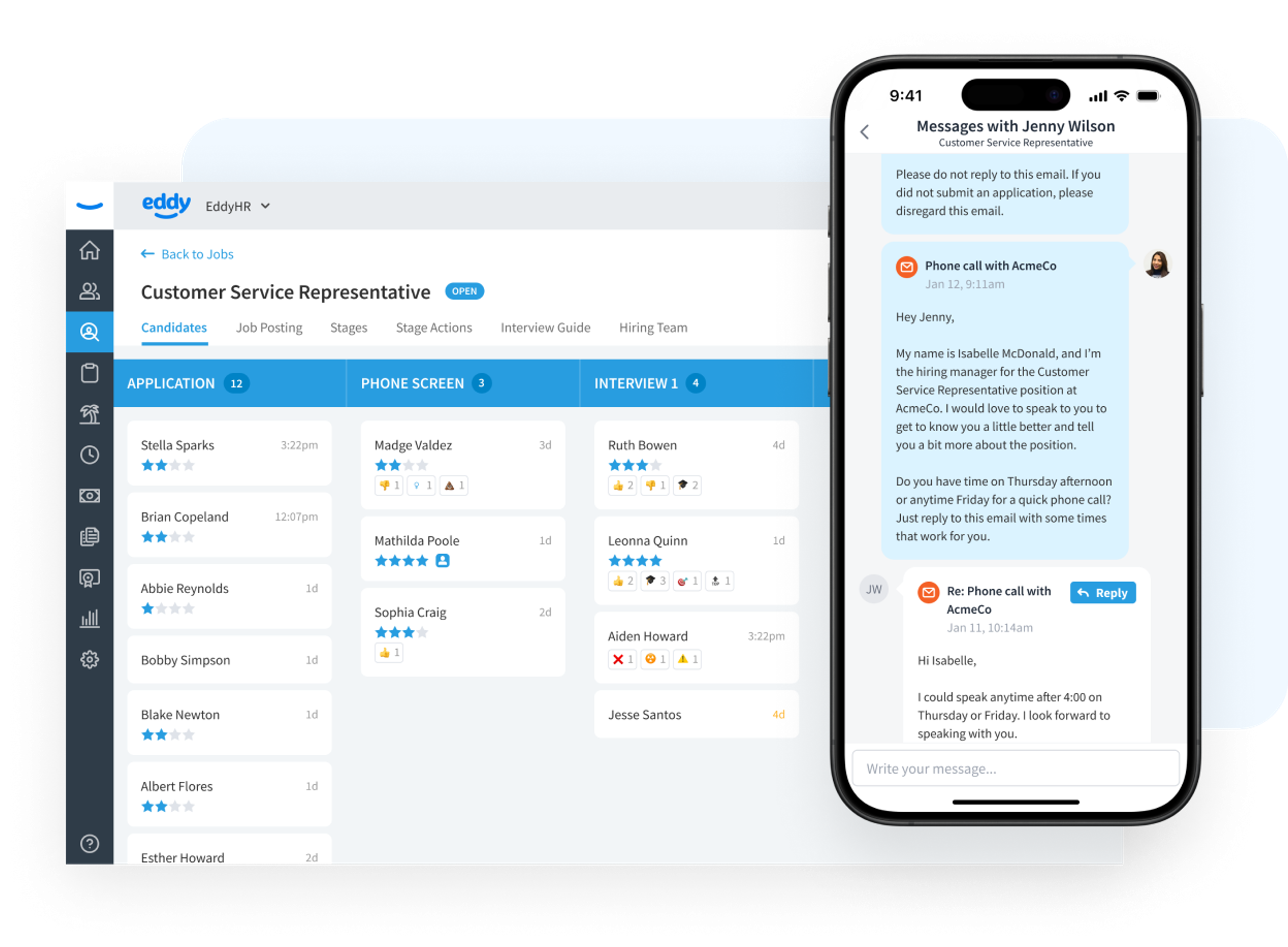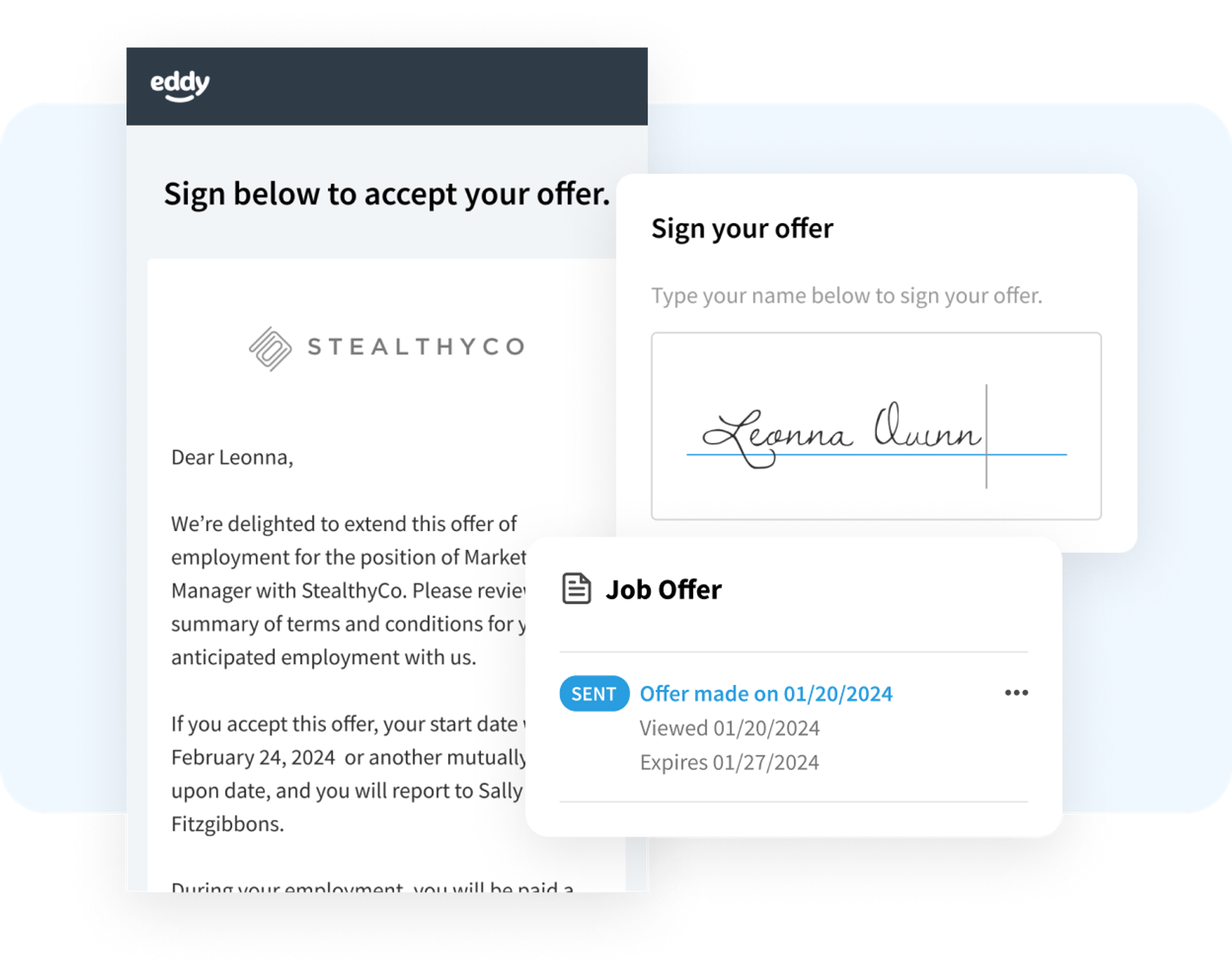HR HIRING AND RECRUITMENT SOFTWARE
Hire the best people quickly
Start off on the right foot with our HR hiring software that makes you look professional and keeps you compliant. With smart automation to make it a great experience for everyone, it’s easier to find and hire the best candidates faster.
Get a demo
Find and hire the right candidates faster
Our comprehensive ATS does it all. From job distribution and promotion, automated messaging and scheduling, hiring communication and collaboration, digital offer letters, and background checks. Choosing the right recruiting software for small businesses can streamline your hiring process and save valuable time.
Get your job listings in front of the right candidates
Eddy makes it easy to get your job listing in front of the right candidates with our HR hiring software.
- With one click you can post your job to the major jobs boards, including Indeed, ZipRecruiter, Glassdoor, LinkedIn, and up to 25,000 other jobs boards.
- To get even more applicants, you can pay to promote jobs on Indeed and ZipRecruiter right from inside Eddy.

Move quickly to turn the best candidates into employees
The best candidates often don’t stay available for long. Eddy helps you move quickly, so you can turn those candidates into employees.
- Automated messaging at each stage of your pipeline keeps candidates informed and engaged. Plus, automated interview scheduling lets candidates pick their own time slot and cuts out all the wasted time going back and forth.
- The customizable, drag-and-drop pipeline makes it easy to see all your candidates at a glance, so you always know where they are in the process.
- Our partnership with Checkr means you can perform a background check within Eddy.
- Candidate profiles track candidate info—resume, contact info, comments and ratings from your hiring team, and background checks—all in one place, making for easy collaboration and decision making.

Get the right candidate the right offer fast
After interviewing candidates and deciding who to hire, send a digital offer letter to seal the deal. An offer can be created with just a few clicks, and viewing and signing the letter is quick and hassle-free for your new hire.
- Send offer letters the fast and easy way with built-in templates and online offer letter management.
- Get notified as soon as the offer is accepted.
- A copy of the offer letter is added to the new hire’s documents in their employee profile, so you always have a copy.

"I would say, you know, it's at least six hours a week that I would be saving [on hiring] based on how much time I would have to spend previously."
Jared Porter
Co-Founder, 401GO
Compliant Job Descriptions and postings
Good compliance and legal protection in your hiring process starts with your job description and postings. Eddy helps you stay GDPR EEOC/OFFCCP compliant.
- Create clear, accurate, and non-discriminatory job listings with the help of Eddy. Our hiring software shares tips to avoid language that could be seen as discriminatory.
- Eddy guides you to include essential job functions and required qualifications to prevent potential claims of discrimination.

Bias-free interviews
- Our built-in question library can guide you through a solid interview process with questions vetted by pros that drill into the key information you need.
- The Dos and Don’ts list helps train your interview team to remove bias and avoid discriminatory questions that can cause EEO issues and lead to lawsuits.

“Eddy has made this simple for me. I'm not an HR person. There's enough hard things about building a new business. Having Eddy just really is a godsend because it is so easy. If only everything else would be this easy!”
Trebeca Itzen
Owner/Admin at Bighorn Plumbing
View our other HR products
With Eddy's all-in-one HR platform you can hire, onboard, manage, and pay employees with one easy-to-use system. No headache required.

Frequently asked questions
Simplify your hiring process
Book a customized demo with Eddy today.

